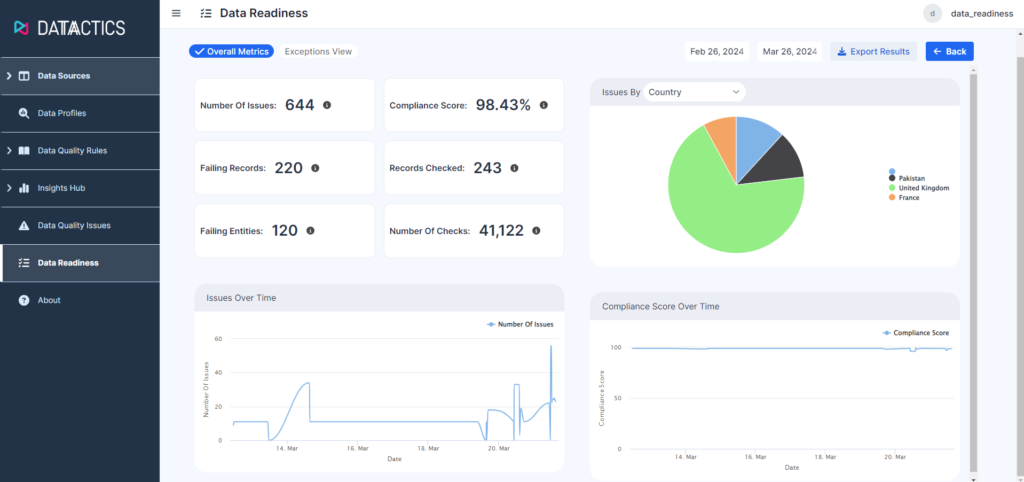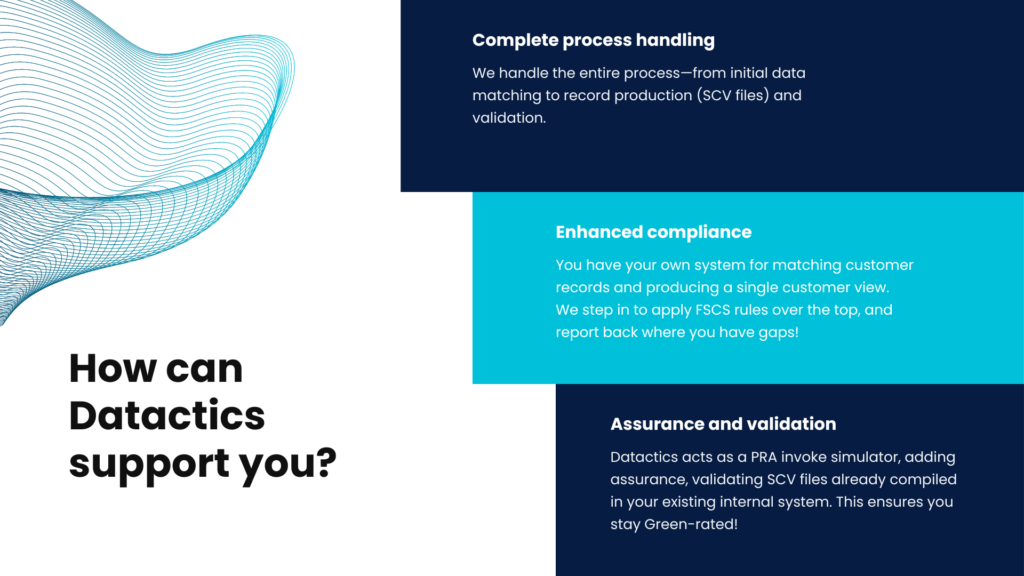
Why does FSCS compliance matter?
HSBC Bank plc (HBEU) and HSBC UK Bank plc (HBUK)’s January 2024 fine, imposed by the Prudential Regulation Authority (PRA) for historic failures in deposit protection identification and notification, alongside the 2023 United States banking crisis, jointly serve as stark reminders of the importance of depositor protection regulation.
Both events, emblematic of the broader challenges faced by the banking sector, underscore the necessity of rigorous data governance and quality for FSCS compliance and depositor protection.
HSBC’s penalty, the second largest imposed by the PRA, highlights the consequences of inadequate data management practices, while the 2023 US banking crisis, characterised by the failure of three small-to-midsize banks, reveals the systemic risks posed by liquidity concerns and market instability.
These incidents draw attention not only to the pressing issues of today, but also to the enduring mechanisms put in place to safeguard financial stability. The Financial Services Compensation Scheme (FSCS), established in the United Kingdom, embodies such a mechanism, created to instil consumer confidence and prevent the domino effect of bank runs.
What is Single Customer View (SCV)?
The FSCS’s role becomes especially pivotal in times of uncertainty: if a bank collapses, the FSCS’s compensation mechanism needs to activate almost instantaneously to maintain this confidence.
According to the Prudential Regulation Authority (PRA) Rulebook (Section 12), firms are required to produce a Single Customer View (SCV) — a comprehensive record of eligible guaranteed deposits — within 24 hours of a bank’s failure or whenever the PRA or FSCS requests it.
This response, underscored by the accuracy and rapidity of depositor information, is a bulwark designed to avert a banking crisis by ensuring timely compensation for affected customers. Over time, as the FSCS has amplified depositor protection to cover up to £85,000 per individual, the 24-hour SCV mandate has marked a significant stride towards a more secure and robust financial sector, solidifying the foundation where depositor trust is paramount.
What data challenges does SCV pose?
When it comes to implementing the SCV regulation, the devil lies in the details. The demand for accuracy and consistency in depositor records translates into specific, often arduous, data quality challenges. Financial institutions must ensure that each depositor’s record is not only accurate but also aligned with SCV’s granular requirements:
Below are 5 data challenges associated with SCV:
- Identification and rectification of duplicated records– Duplication can occur due to disparate data entry points or legacy systems not communicating effectively.
- Lack of consistency across records– Customer details may have slight variations across different systems, such as misspelt names or outdated addresses, which can impede the quick identification of accounts under SCV mandates.
- Data timeliness– SCV necessitates that data be updated within a 24-hour window, requiring real-time (or near-real-time) processing capabilities. Legacy systems, often built on batch processing, may struggle to adapt to this requirement.
- Discrepancies in account status — determining if an account is active, dormant, or closed — must be resolved to prevent compensation delays or errors.
- Aggregating siloed data– the comprehensive nature of depositor information mandated by SCV involves aggregating data across multiple product lines, account types, and even geographical locations for international banks, a task that can be formidable given the legacy data structures and the diversity of regulatory environments.
The HSBC fine, in particular, underscores the ramifications of inaccurate risk categorisation under the depositor protection rules and the insufficiency of stress testing scenarios tailored to depositor data. Without robust data quality controls, banks risk misclassifying depositor coverage, which could potentially lead to regulatory sanctions and reputational damage.
Why integrate SCV with wider data strategies?
By incorporating meticulous data standards and validation processes as part of an enterprise strategy, banks can transform data management from a regulatory burden into a strategic asset.
The crux of effective depositor protection lies not just in adhering to SCV requirements, but in embracing a broader perspective on data governance and quality. This means positioning SCV not in isolation but as a critical component of a comprehensive account and customer-level data strategy.
To overcome these challenges, financial institutions must not only deploy advanced data governance and quality tooling but also foster a culture of data stewardship where data quality is an enterprise-wide responsibility and not one that is siloed within IT departments. By incorporating meticulous data standards and validation processes as part of an enterprise strategy, banks can transform data management from a regulatory burden into a strategic asset.
An enterprise approach involves:
- Unified Data Governance Frameworks: Establishing unified data governance frameworks that ensure data accuracy, consistency, and accessibility across the enterprise.
- Advanced Data Quality Measures: Implementing advanced data quality measures that address inaccuracies and inconsistencies head-on, ensuring that all customer data is up-to-date and reliable.
- Integration with Broader Business Objectives: Aligning SCV and other regulatory data requirements with broader business objectives, including risk management, customer experience enhancement, and operational efficiency.
- Leveraging Technology and Analytics: Employing cutting-edge technology and analytics to streamline data management processes, from data collection and integration to analysis and reporting.
How does Datactics support FSCS compliance?
The recent HSBC fine and the 2023 US banking crisis serve as critical catalysts for reflection on the role of depositor protection regulation and the imperative of a holistic data strategy.
FSCS regulatory reporting compliance underscores the evolution of depositor protection in response to financial crises, whilst the challenges presented by these regulations highlight the need for advanced data governance and quality measures.
At Datactics, we understand that the challenges posed by regulations like SCV indicate broader issues within data management and governance.
Our approach transcends the piecemeal addressing of regulatory requirements; instead, we advocate for and implement a comprehensive data strategy that integrates SCV within the wider context of account and customer-level data management.
Our solutions are designed to support regulatory compliance but also to bolster the overall data governance and quality framework of financial institutions.

We work closely with our clients to:
- Identify and Address Data Quality Issues: Through advanced analytics and machine learning, we pinpoint and rectify data quality issues, ensuring compliance and enhancing overall data integrity.
- Implement Robust Data Governance Practices: We help institutions establish and maintain robust data governance practices that align with both regulatory requirements and business goals.
- Foster a Culture of Data Excellence: Beyond technical solutions, we emphasise the importance of fostering a culture that values data accuracy, consistency, and transparency.
We are committed to helping our customers navigate FSCS compliance, not by addressing regulations in isolation but by integrating them into a broader, strategic and more sustainable framework of account and customer-level data management. By doing so, we ensure compliance and protection for depositors whilst paving the way for a more resilient, trustworthy, and efficient banking sector.

